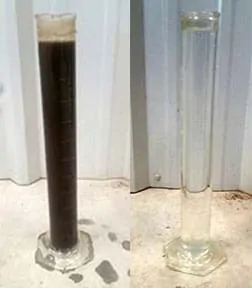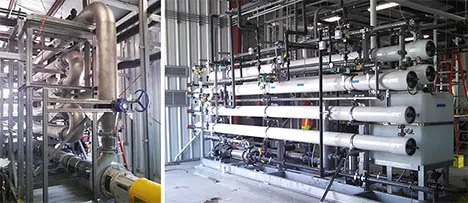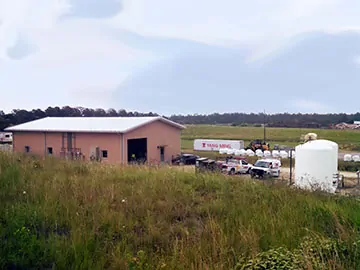

Join SCS Engineers at the 2025 Air & Waste Management Conference & Exhibition, taking place June 9-12 at the Raleigh Convention Center in Raleigh, NC. This event brings together experts in air quality, climate change, and environmental management to explore the latest regulations, policies, and innovations. ACE 2025 will cover key topics such as clean technology, sustainable energy solutions, environmental and climate justice, PFAS, green transportation, and ESG strategies and reporting. Hot topics include the use of satellite data for air quality and emissions assessments, as well as the future of hydrogen as a fuel. Don’t miss out—register today!
Join Pat Sullivan at the Environmental Challenge International (ECi) Competition where student teams propose effective solutions to a simulated environmental problem.
Victoria A. Evans presents Corporate Climate Disclosures: Roadmap for the Journey to Mandatory Reporting. Victoria’s presentation will provide the highlights of these new disclosure requirements for climate disclosures, the standards to be applied, and the related audit (assurance) requirements for each. Carbon accounting expectations, materiality considerations and what to do now to prepare will be discussed.
Eva Luu and Armando Hurtado-Garcia present how to effectively mitigate odors that terpenes and other compounds produce. Through meticulous planning and iterative rounds of testing, SCS identified total reduced sulfurs (TRS) as a reliable surrogate for real-time measurements of cannabis odors in enclosed spaces. This approach allows operators to identify odor problems in situ and take necessary action in a timely manner ultimately assisting cultivators in effectively addressing community concerns while optimizing operational integrity.
Stephanie Taylor is a panelist for the Career Panel Being Adaptable for a Resilient Career that is part of the Student Program at ACE. The panel will be held Tuesday, June 10, 1:00 pm – 2:30 pm . Get the inside scoop from distinguished professionals working in different parts of the environmental field as they share their career experiences and answer questions in this interactive and enlightening panel.
Talk with SCS Engineers environmental and financial professionals Vita Quinn, Amy Guilfoyle, and Neil Campbell at the Florida Association of Counties (FAC) 2023 Annual Conference, “Building Florida’s Future,” June 27-30, at the Hilton Orlando Bonnet Creek.
The Florida Association of Counties has held an annual conference for more than 90 years. This conference, the largest FAC event each year, offers an opportunity for hundreds of commissioners and county staff from across the state to gather for continuing education and critical networking. The conference includes a 100+ booth educational exhibition with exhibitors from around the country sharing cost saving tools and products with counties.
Click for more conference details and registration information. We hope to see you there!
A couple of decades ago, industry Environmental Managers (EM) reviewed and interpreted regulations, permit requirements, and reporting obligations and educated their operations personnel on requirements from the Clean Air Act and Clean Water Act. As usual, time flies, and those major pieces of environmental legislation are more than 50 years old now, and much of the framework remains unchanged. There have also been advances in the best control technologies and great strides in automated record keeping and reporting, enabling us as environmental compliance professionals to be more efficient and offering “clear skies” regarding a manageable workload. Sure, occasional exceedances, deviations, or releases require a four-alarm fire drill as an appropriate response or the integration of the most recent ISO 14001 version release. Still, for the most part, times were good.
Sustainability changes everything.
Environmental Managers read press releases from CEOs making bold claims that their company is adopting “zero” carbon or “net neutral” goals without a real baseline carbon inventory or a roadmap for accomplishing such aggressive measures. Not to say that setting stretch targets are a “bad thing.” On the contrary, they are good targets that improve environmental stewardship for companies that may not otherwise focus on such activities. John F. Kennedy’s famous “We choose to go to the Moon” speech set a bold target for landing on the moon, stretching our space program to new limits.
Meeting the New Challenge
The challenge for you, the EM, comes into play when the responsibility of this relatively new sustainability practice is now on your desk. Larger companies are hiring Sustainability Directors at a record pace which is vital to the planning and programming of new sustainability initiatives. But even then, there are situations where EMs are responsible for implementation and retrofitting plans or projects that are conceptual in nature. And if you don’t have the luxury of a Sustainability Director to lean on, you now have the additional responsibility of developing road maps and strategies.
Where can an Environmental Manager focus on impactfully?
After concluding your version of the Serenity Prayer, we suggest starting in these three areas:
These steps will go a long way toward planning, programming, and launching sustainability initiatives with measurable results. Environmental Managers are making a difference by collaborating with operations to convert sustainable ideas and goals into reality. SCS works with large and small public and private entities to support their actions.

Additional Resources:
MasterMold, LLC makes component parts for manufacturers of recreational vehicles, utility equipment, and agricultural equipment who use the components in their end products. Because of the wide variety of industries and customers it serves, MasterMold must be poised to respond to its customers’ growth by increasing production levels on demand.
Executive Vice President Jon Butts manages environmental compliance at three production facilities. “Environmental management is just one of the many hats I wear,” says Butts. MasterMold has multiple environmental needs. Permitting is high on Butts’ list, and so is passing routine inspections.
To help MasterMold meet its environmental compliance needs, the SCS Engineers team assessed the company’s air permitting needs with an eye toward future increases in customer demand. The team helped turn around a permit application quickly so MasterMold could continue to meet its customers’ production expectations without interruption and remain compliant with environmental rules and regulations. Butts stated:
Then SCS Engineers helped me collect and organize data for emission calculations in one place. They created an easy-to-use tool that my staff updates monthly so we’re prepared for an on-site inspection anytime. I can demonstrate compliance, pass inspections quickly, and get back to focusing on my customers.
Butts got the opportunity to test the new tool during the company’s latest inspections. MasterMold has undergone routine inspections by the Wisconsin Department of Natural Resources (WDNR) and the U.S. Environmental Protection Agency (USEPA). Both agencies checked the company’s compliance status with its air permit at its largest plants. “I had everything organized right at my fingertips,” Butts says. “I was ready for the inspections. I now know exactly where all of our emissions come from and exactly how they change over time.”
Thanks to the tool SCS Engineers helped me build, MasterMold passed its latest inspections in just a few hours with no citations. I’m confident I will pass on-site inspections and gain and grow inspectors’ trust in MasterMold’s business practices. Now I’m in a position to influence the process, take proactive steps, and partner with my inspector instead of responding reactively.
—Jon Butts, Executive Vice President, MasterMold, LLC | Johnson Creek, WI
SCS Engineers met a tight, non-negotiable regulatory deadline to get the new plant on-line while meeting non-toxic effluent standards.

Everyone enjoys before and after pictures; just look at the results New Hanover County’s program is producing. This and other County programs are helping this North Carolina county reduce reliance on landfill disposal while creating a comprehensive and sustainable solid waste management system that is protective of the environment.
In 2016 a new wastewater treatment plant was commissioned at the New Hanover County Landfill. The new facility processes approximately 65,000 gallons per day (GPD) of leachate using state-of-the-art ultrafiltration (UF) and reverse osmosis (RO) technologies to meet or exceed federal and state treatment standards.
The raw leachate is pre-treated in an existing aerobic lagoon followed by a sequencing batch reactor (SBR) to reduce organic constituents. The pretreated effluent then flows into the membrane system. Using state-of-the-art membrane filtration technology, including ultrafiltration (UF) pictured at lower left, and a reverse osmosis (RO) system, pictured lower right, to produce crystal clear, effluent discharged to an upper tributary of the Cape Fear River.

The new facility can process 75,000 GPD and the Wastewater treated through the new system meets state Drinking Water standards for quality.
Tough surface water discharge standards and predictable performance in cold weather drove the design to use UF/RO systems. The results are impressive; metals including arsenic are BDL, ammonia <0.2 ppm, and TSS < 2 ppm. The system produces approximately 13,000 GPD of RO concentrate that is pumped to the working face and safely disposed of in the landfill. The County has certified operators that have played a big role in getting the plant shaken down and running smoothly.

“New Hanover County is an industry leader in adopting proven technologies to better manage solid waste, and protect the environment. This kind of planning and approach can benefit many other public works departments,” stated Bruce Clark, PE, BCES, LEED AP®, and SCS Engineers National Expert on Waste Conversion.
As Joe Suleyman, the County’s Environmental Management Director put it, “Let’s face it – people move to New Hanover County because they love to be in, on, or near the water. Our technical staff is composed of very talented folks who have environmental science and biology backgrounds. They believe in what they’re doing to help protect our delicate coastal environment, and this state-of-the-art system is a huge stride towards meeting our own expectations and those of the citizens we serve.”
See more case studies, services, and professionals on the SCS Engineers – Liquids Management Website